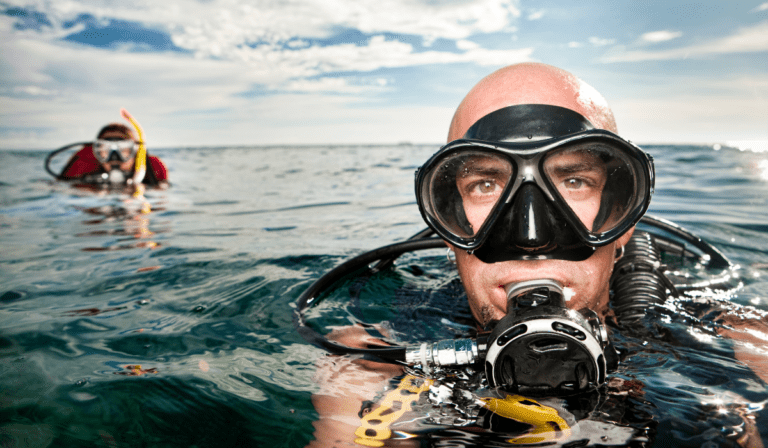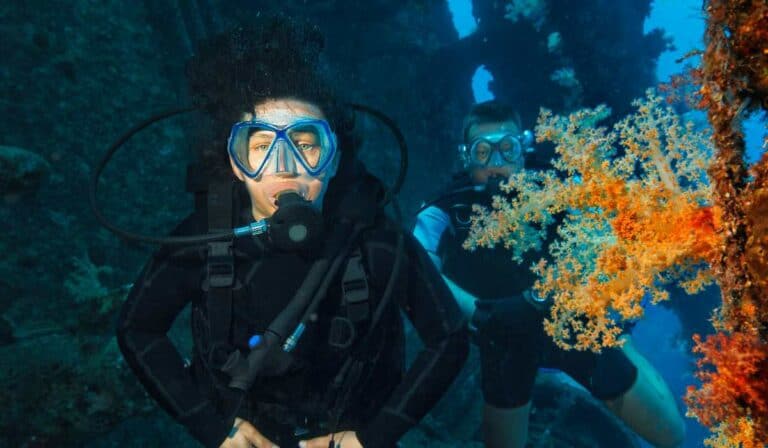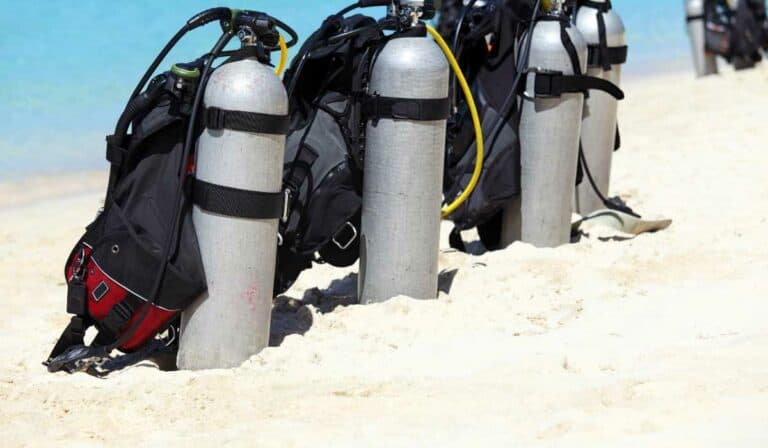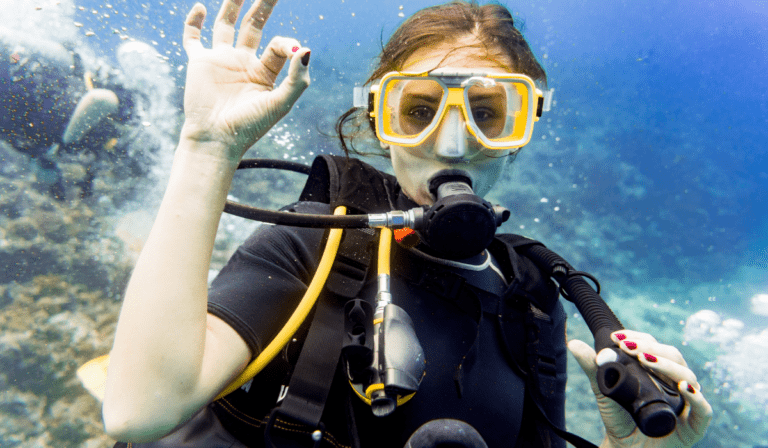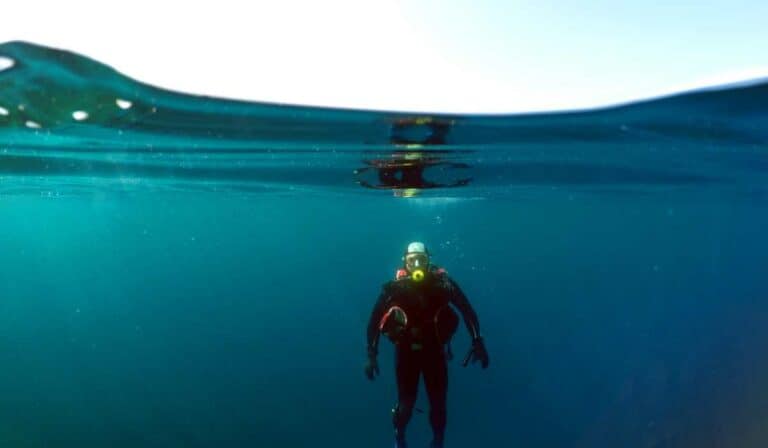Scuba Safety: Rules Everyone Must Follow While Diving
In this post, we will delve into some essential scuba diving safety rules that every diver should follow. By following these safety rules, divers can reduce risks and create a more pleasant experience for all involved.
We’ll start by discussing the importance of understanding your limits as a diver, followed by tips on how to check your equipment thoroughly before each dive. Next, we will cover various diving rules such as depth limits and air management strategies which are vital in preventing decompression sickness or other complications during recreational dives. Furthermore, staying alert while underwater is key to avoiding any uncomfortable situations or emergencies that may arise.
Finally, it is essential to be conscious of one’s environment when submerged in the sea so as to preserve the natural equilibrium of its ecosystems; therefore divers should take heed while perusing underwater habitats. So join us as we take a deep dive into Scuba Safety: Rules Everyone Must Follow While Scuba Diving!
Table of Contents
1. Understand Your Limits
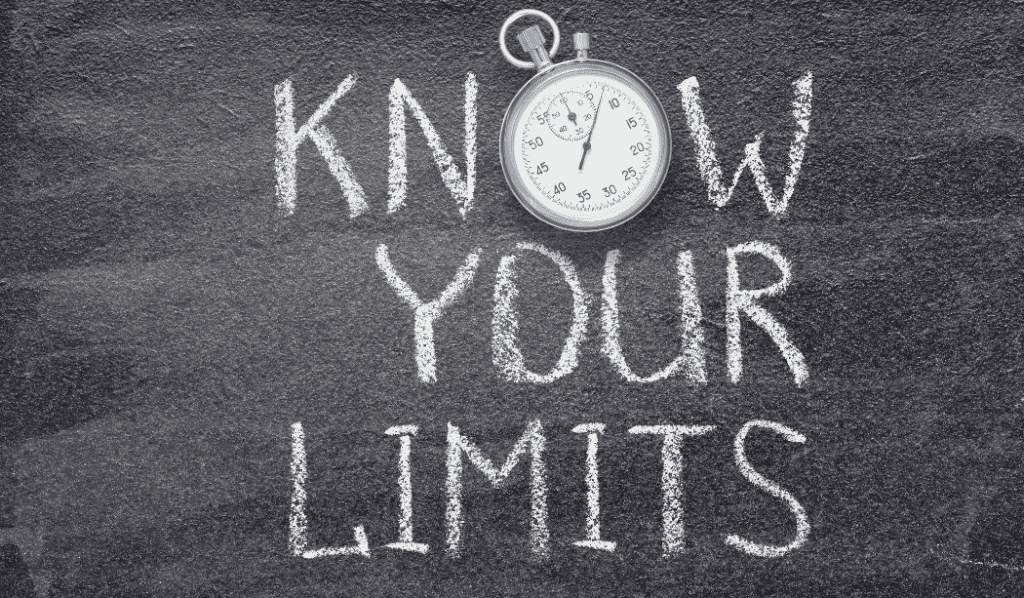
It is imperative to be aware of your physical and mental boundaries prior to scuba diving, as exceeding them can create hazardous circumstances for both you and others. Diving beyond your abilities can lead to dangerous situations for both you and others in the water.
A. Assess Your Fitness Level
Before attempting any scuba diving adventure, ensure that you are physically fit enough to handle the demands of this underwater activity. Factors such as age, weight, cardiovascular health, and overall strength play a significant role in determining whether or not you’re ready for scuba diving. Before embarking on a scuba diving excursion, it is advisable to consult with a medical expert if you have any pre-existing health issues that may affect your ability to safely participate.
B. Know Your Skill Level
Different dives require varying levels of expertise; therefore, it’s crucial to be honest about your skill level when planning a dive trip. If you’re new to scuba diving or haven’t been on many dives yet, PADI Open Water certification courses are available worldwide to help beginners learn proper techniques while gaining valuable experience under expert supervision.
- Beginner: Stick to shallow depths (less than 60 feet) with minimal currents and good visibility.
- Intermediate: Dive sites may include moderate depths (up to 100 feet), mild currents, and wreck penetration opportunities depending on training received.
- Advanced: Advanced divers can explore deeper waters (beyond 100 feet), strong currents, or challenging environments like caves after obtaining appropriate certifications such as SDI Advanced Adventure Diver or PADI Advanced Open Water Diver.
C. Dive with a Buddy and Communicate Clearly
Diving with a buddy is not only more enjoyable but also safer as you can assist each other in case of any issues during the dive. Make sure to communicate your limits, preferences, and concerns openly with your diving partner before entering the water. Establishing hand signals for underwater communication will ensure that both divers are on the same page throughout the experience.
By understanding your limits and taking appropriate precautions, you’ll be able to enjoy scuba diving safely while exploring our planet’s breathtaking underwater world.
Realizing your body’s and mind’s restrictions is key before scuba diving, since it can be hazardous if not done correctly. Having ascertained your capabilities, let us now turn our attention to ensuring the proper functioning of all relevant equipment.
Key Takeaway:
Evaluate your physical aptitude and expertise prior to scuba diving. Beginners should stick to shallow depths with minimal currents, while advanced divers can explore deeper waters after obtaining appropriate certifications. Always dive with a buddy and communicate clearly using hand signals for underwater communication.
Click here to read about The History of Scuba Diving: Origins and Evolution
2. Check Your Equipment
Before you take the plunge into the deep blue, it’s crucial to ensure that all of your scuba gear is in good working order. This not only guarantees a safe and enjoyable diving experience but also helps prevent any potential accidents or equipment malfunctions while underwater.
A. Inspect Your Gear Before Each Dive
Regularly inspecting your scuba diving essentials, such as regulators, buoyancy compensator devices (BCDs), masks, fins, and wetsuits before each dive will help identify any signs of wear or damage that may compromise their functionality. Be sure to check for leaks, cracks, loose connections, and proper fit.
B. Perform Routine Maintenance on Your Scuba Gear
Maintaining your scuba equipment is essential for its longevity and optimal performance during dives. Regularly clean and store your gear properly after each use to avoid deterioration caused by saltwater exposure or other environmental factors.
- Regulators: Rinse thoroughly with fresh water after every dive; service annually by a professional technician.
- Masks & Fins: Clean with mild soap and water; inspect straps for wear regularly.
- Buoyancy Compensator Devices (BCDs): Rinse inside out with fresh water; inflate fully to dry completely before storage; service annually by a professional technician.
- Tanks: Visually inspected at least once per year; hydrostatically tested every five years by an authorized facility (Visual Cylinder Inspector).
- Wetsuits & Drysuits: Rinse with fresh water after each use; hang to dry away from direct sunlight.
C. Renting Equipment? Double-Check Its Condition.
If you’re renting scuba gear, it’s still your responsibility to ensure that everything is in good working order before diving. Familiarize yourself with the equipment and don’t hesitate to ask the rental shop staff any questions or request assistance if needed. Remember, safety should always be your top priority while exploring the underwater world.
To ensure a stress-free and enjoyable diving experience, it is important to be familiar with the equipment and take necessary safety precautions.
Before submerging, it is critical to inspect one’s gear thoroughly in order to guarantee a safe and enjoyable dive. Therefore, following safety rules while scuba diving is just as important in order to ensure that everyone has a great time underwater.
Key Takeaway:
Prior to scuba diving, ensure your apparatus is checked and maintained. Regularly inspecting gear for wear or damage can prevent accidents while underwater. Even when renting equipment, it’s still the diver’s responsibility to ensure everything is in good working order before taking the plunge.
3. Rules Everyone Must Follow While Scuba Diving
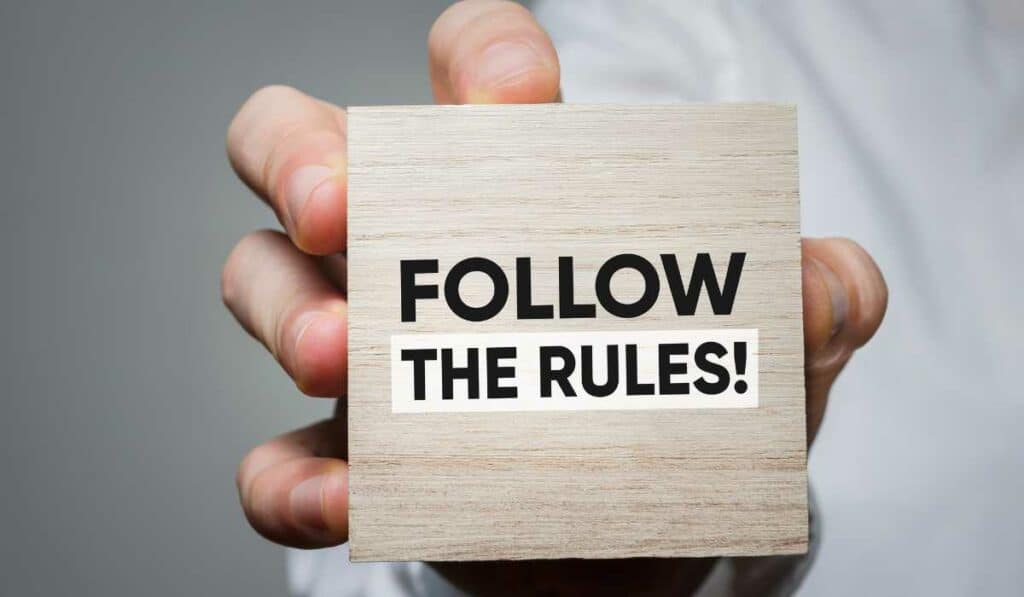
When it comes to scuba diving, following rules and regulations is crucial for your safety and that of others around you. It’s essential to be aware of the local laws governing diving activities in each location you visit. Rules are established to safeguard not only divers but also the aquatic habitat.
A. Get Certified
First and foremost, make sure you have proper scuba certification. This ensures that you’ve undergone appropriate training and possess adequate knowledge about dive procedures, equipment handling, emergency situations, and more.
B. Dive with a Buddy or Group
Diving alone can be dangerous; always follow the buddy system or join a group when exploring underwater wonders. Having someone by your side can provide assistance during emergencies or help spot potential hazards before they become serious problems.
Click here to read about Scuba Diving in South America: The Ultimate Guide
C. Adhere to Depth Limits
- No-decompression limits: Be mindful of your no-decompression limit (NDL), which indicates how long you can stay at specific depths without requiring decompression stops on the ascent.
- Certification level limits: Stay within depth limits specified by your certification level – exceeding these could expose you to increased risks such as nitrogen narcosis or decompression sickness (DCS).
- Dive site-specific restrictions: Some dive sites may have additional depth restrictions due to environmental factors like strong currents or poor visibility; always respect these limitations for safe diving experiences.
Dive Site Briefings & Local Regulations
Prioritize attending dive briefings provided by instructors or divemasters. These briefings are essential for understanding site-specific rules, hazards, and local regulations such as marine protected areas (MPAs) or no-take zones. Additionally, familiarize yourself with DAN’s diving safety guidelines to ensure you’re following best practices.
D. Dive Flags & Surface Markers
Utilizing dive flags and surface markers is a crucial aspect of scuba safety; these signal your presence to nearby boats and other watercraft while underwater. Familiarize yourself with the appropriate use of dive flags and surface marker buoys (SMB), as well as any regional variations in flag colors or shapes.
To ensure our own safety and the continued health of aquatic habitats, it is essential that scuba divers follow established regulations. Remember to always prioritize safe scuba diving practices, and stay within your limits to avoid any uncomfortable situations or diving fatalities.
Following the rules is essential for a safe and enjoyable scuba diving experience. Hence, vigilance is a must while submerged in order to guarantee a safe and pleasant scuba diving experience.
Key Takeaway:
To ensure safe scuba diving, it is important to follow rules and regulations. This includes getting certified, diving with a buddy or group, adhering to depth limits and dive site restrictions, attending briefings on local regulations and hazards, using appropriate dive flags and surface markers, and following best practices for scuba safety. Remember that responsible scuba diving not only protects divers but also the marine environment.
4. Stay Alert
Being aware of your surroundings at all times while underwater is crucial for scuba safety. This includes not only keeping an eye on your fellow divers but also being mindful of potential hazards and changes in the environment around you. Staying alert can help prevent accidents, ensure a smooth dive experience, and protect both yourself and marine life.
Awareness of Fellow Divers
Maintaining good communication with your dive buddy or group is essential for staying safe underwater. Regularly check on each other’s well-being by using hand signals or other forms of underwater communication. Additionally, always keep a safe distance from one another to avoid accidental collisions or entanglements.
Monitor Your Dive Equipment
Regularly glance at your gauges throughout the dive to monitor air supply, depth, and bottom time. Keeping track of these factors will help you manage decompression limits and maintain proper buoyancy control during the ascent/descent phases.
Navigational Awareness
- Dive Site Familiarity: Before scuba diving into unknown waters, research the site thoroughly or seek guidance from experienced local divers who are familiar with its unique features such as currents, visibility conditions, entry/exit points, etc.
- Ocean Currents: Be prepared to deal with strong ocean currents that may arise unexpectedly during dives; this might involve adjusting your position relative to reefs, wrecks, or bottom contours accordingly so as not to be swept away off course.
- Tides & Visibility: Check tide charts before embarking on any dive trip since tides can greatly affect visibility levels and water movement patterns at certain sites.
Environmental Hazards
Beware of potential hazards such as sharp rocks, coral formations, or marine creatures that could pose a threat to your safety. For example, avoid touching fire corals or getting too close to dangerous marine animals. Additionally, be cautious when scuba diving near caves or wrecks since they may have hidden hazards like entanglement risks from fishing lines/nets.
In conclusion, staying vigilant while diving is key for both protecting yourself and the underwater world. By maintaining good communication with fellow divers, monitoring equipment regularly, and being aware of navigational factors and potential environmental hazards, you will enjoy a safer and more enjoyable scuba dive experience.
Staying vigilant and cognizant of one’s environment while scuba diving is essential to help avert any possible mishaps. Respect for the wildlife that inhabits the waters you are exploring is also essential; this includes not touching or harassing any marine life.
Key Takeaway:
It is essential to remain vigilant and conscious of any risks while diving in order to guarantee scuba safety. This includes maintaining good communication with fellow divers, monitoring equipment regularly, being familiar with the dive site’s unique features such as currents and visibility levels, and avoiding potential environmental hazards like sharp rocks or dangerous marine creatures. By following these rules, you can enjoy a safer and more enjoyable scuba diving experience.
5. Respect Wildlife
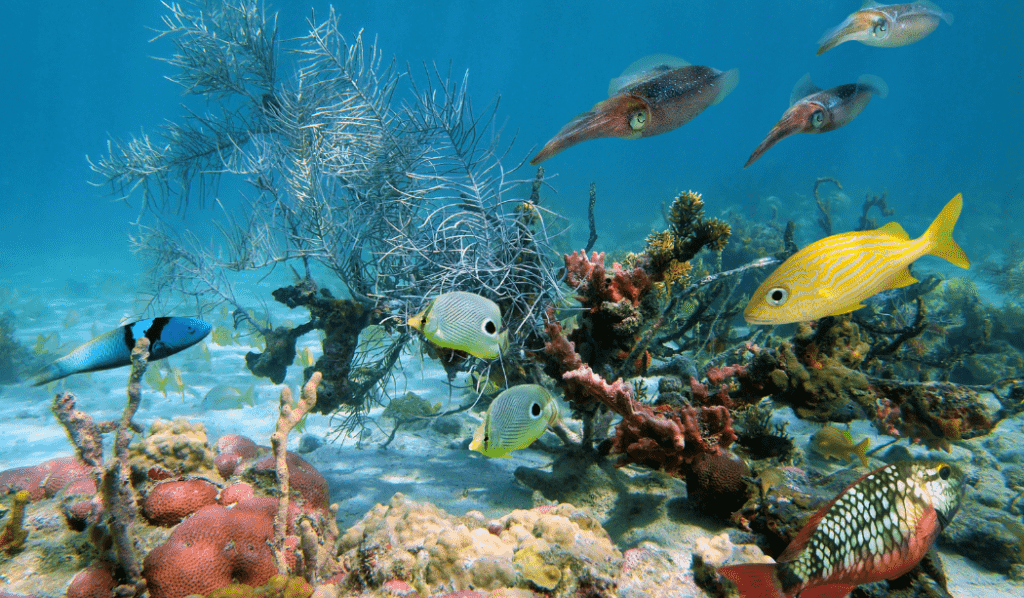
While exploring the underwater realm, it is essential to remember that one is a visitor and should show respect for all marine life. Disturbing or harming any creatures can have negative consequences for both the animals and their ecosystem. Here are some tips on how to interact responsibly with wildlife during your dive:
- Maintain a safe distance: Give marine life plenty of space, especially when they’re feeding or mating. Some species may feel threatened if approached too closely, which could lead to aggressive behavior.
- Avoid touching or handling: It’s best not to touch any animals while diving, as this can cause stress and potentially harm them. Additionally, many organisms have protective coatings that can be damaged by human contact.
- No feeding: Feeding wild animals disrupts their natural behaviors and diet, making them dependent on humans for food. This is harmful to both the individual animal and its population. Learn more about ethical interactions with marine life here.
- Familiarize yourself with local regulations: Many popular dive sites have specific rules regarding interaction with certain species or habitats; make sure you know these before entering the water.
Click here to read about Scuba Diving Questions You Must Know
In addition to respecting wildlife during your dives, consider supporting organizations working towards ocean conservation efforts such as Project AWARE. By following these guidelines and promoting responsible practices among fellow divers, we can help preserve our oceans’ incredible biodiversity for future generations to enjoy.
FAQs about Scuba Safety: Rules Everyone Must Follow While Scuba Diving
What are the most important rules for scuba diving?
The most important rules for scuba diving include understanding your limits, checking your equipment, following established guidelines and procedures, staying alert to potential hazards, and respecting marine wildlife. Adhering to these principles ensures a safe and enjoyable underwater experience.
WHAT IS THE SINGLE MOST IMPORTANT RULE OF SCUBA DIVING?
The single most important rule of scuba diving is never holding your breath while underwater. Holding your breath can lead to serious injury or even death due to lung overexpansion as you ascend. Always remember to breathe continuously throughout the dive.
What are the laws of scuba diving?
Laws governing scuba diving vary by country but generally involve regulations on certification requirements, protected marine areas, marine life protection, safety standards, and adherence to local customs. It’s essential that divers research applicable laws in their destination before embarking on a dive trip.
What is the golden rule of scuba diving?
The golden rule of scuba diving is “Plan Your Dive and Dive Your Plan.” This means carefully planning each aspect of your dive – including depth limits, air consumption rates, decompression stops, and buddy communication signals – then strictly adhering to this plan during the actual dive.
Conclusion
Scuba diving is a thrilling and adventurous activity that can be enjoyed by anyone. However, it is important to prioritize safety while exploring the underwater world. By understanding your limits, checking your equipment, following the rules, staying alert, and respecting wildlife you can ensure an enjoyable and safe scuba diving experience.
Remember to always dive with a buddy and communicate effectively throughout the dive. It’s essential to be ready for any occurrence, despite taking all safety measures.



